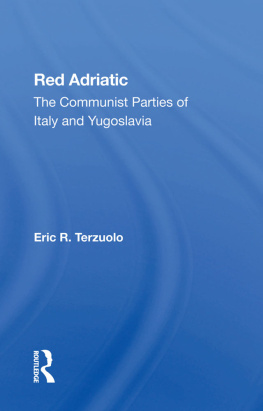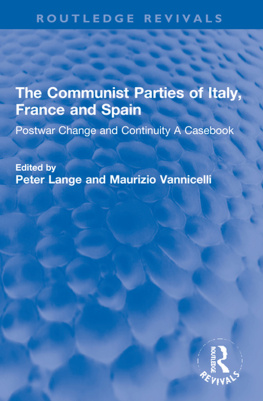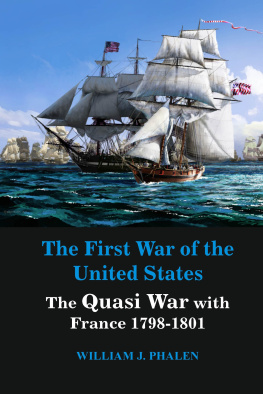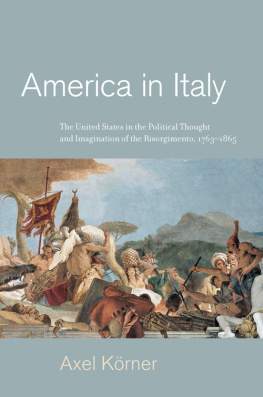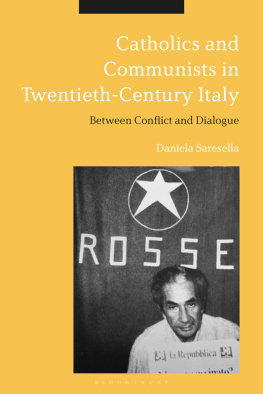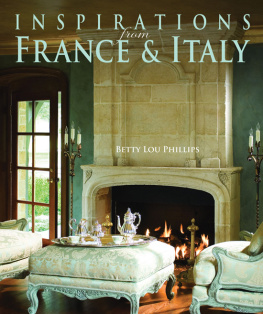CONFRONTING AMERICA
The New Cold War History Odd Arne Westad, editor
2011 THE UNIVERSITY OF NORTH CAROLINA PRESS
ALL RIGHTS RESERVED
MANUFACTURED IN THE UNITED STATES OF AMERICA
Designed by Kimberly Bryant and set in Miller with Gotham display by Tseng Information Systems, Inc. The paper in this book meets the guidelines for permanence and durability of the Committee on Production Guidelines for Book Longevity of the Council on Library Resources. The University of North Carolina Press has been a member of the Green Press Initiative since 2003.
Library of Congress Cataloging-in-Publication Data
Brogi, Alessandro.
Confronting America : the Cold War between the United States and the communists in
France and Italy / Alessandro Brogi.
p. cm. (The new Cold War history)
Includes bibliographical references and index.
ISBN 978-0-8078-3473-2 (cloth : alk. paper)
1. United StatesForeign relationsFrance. 2. FranceForeign relations
United States. 3. United StatesForeign relationsItaly. 4. ItalyForeign relations
United States. 5. United StatesForeign relations19451989. 6. Communism
FranceHistory20th century. 7. CommunismItalyHistory20th century.
8. Anti-AmericanismFranceHistory20th century. 9. Anti-AmericanismItaly
History20th century. 10. Parti communiste franais. 11. Partito comunista italiano.
I. Title.
E183.8.F8B724 2011
327.73044dc22 2010052563
15 14 13 12 11 5 4 3 2 1
Contents
Illustrations
Marshall Plan propaganda poster by the Italian Christian Democratic Party
Christian Democratic poster against the PCI-PSI Popular Front for the 1948 national elections
The PCIS antiMarshall Plan propaganda poster
Anti-NATO poster by the PCF, 1951
PCF poster, 1952
Propaganda poster for the Marshall Plan, 1947
PCIs electoral poster for the 1953 national elections
Italys Christian Democratic Partys electoral poster for the 1953 national elections
Anti-NATO poster by the PCF, 1953
The PCIs campaign against the Vietnam War
Youth Federation of the French Communist Party poster, 1968
PCF poster, 1971
PCI poster, 1973
The Italian Student Communist Movement in solidarity with the womens emancipation movement announcing a demonstration on Womens Day, 8 March, 1970s
PCI poster, 1984
PCF poster, 1985
Poster announcing the Gay Movies Program by the gay movement section of ARCI, 1984
Acknowledgments
At first, I thought I could write this book quickly and without much aid. Of course, like most academics caught in the passion of discovery, I was mistaken. The scope of the research would not have been possible without the assistance of several institutions and individuals. I have also benefited from the critical insights of colleagues who read my first drafts. To all these people and institutions I am truly indebted, although, of course, the views expressed herein are my own.
My first acknowledgment goes to the Fulbright College of the University of Arkansas, and more specifically to the History Department, for allowing considerable leeway with my teaching load, and for showing trust and encouragement through a number of travel grants, a generous summer research stipend, and additional support during my off-campus assignments. History Department Chairs Jeannie Whayne, David Sloan, and especially Lynda Coon have been my strongest advocates with the college administrators. This has been true until the finish line, when, in times of budget cuts and restrictions, Professor Coon not only offered a subsidy from the History Departments own account but also obtained one from the office of Fulbright College Dean William Schwab to help cover the printing costs of this sizeable manuscript.
I am also deeply obliged to the Nobel Peace Institute of Oslo, Norway, which is to be singled out, among the external institutions, as the most supportive and encouraging one for my project. My six months there in 2007 as a research fellow were not only the most productive in the whole time span of this work; they were also the most insightful, thanks in part to the frequent discussions I was privileged to have with an elite group of historians. With the Nobel Institutes director, Geir Lundestad, I continue to have fruitful discussions. Geir and I may agree on many things and agree to disagree on many others. What matters most is that he, like the other members of the Nobel fellowship, perfectly fulfills the programs mission: as Geir constantly reminded each of the institutes fellows, our task was to push one another to the limit, with candid and sometimes brutal criticism, as we faced the difficult tasks of adopting an interdisciplinary as well as truly international approach to history, and of writing on many issues that may still be controversial. Swiss historian Benedikt Schoenborn and the genuinely Norwegian Asle Toje, the other two recipients of this fellowship so fortunately resumed that year, patiently considered my arguments, and discussed matters of anti-Americanism with me. Joining us at the end, the renowned Dutch director of the European Association of American Studies, Rob Kroes, helped ease my pain in dealing with the rather elusive notion of Americanization. The Nobel Institute is also exemplary in its library staff: I especially thank Anne C. Kjelling and Bjrn H. Vangen for their help finding rare source material.
My research in the United States, which included visits to presidential libraries stretching from New England to Kansas, would not have been possible without the additional support I received through a George C. Marshall/Baruch Research Grant from the George C. Marshall Foundation and through Truman Library and Ford Library travel grants. All three archives also must be recognized for their remarkably helpful staffs, comparable to that I once experienced at the Eisenhower Library. The Ford Library offered perhaps the most enthusiastic support, showing me the treasure of material on international relations in this frequently overlooked archival source. The Carter Library, too, should be noted for its prompt and effective release of material through its electronic resource access. My research experience in the United States also bears the memory of the iconic archivist at the National Archives and Records Administration, Sally Kuisel. I concur with the list-server H-Diplo, who recently so admiringly paid homage to Sallys memory.
In France, despite the restrictions still applied to the French Communist Partys documentation, archivist Pascal Carreau directed me to unexpectedly informative files and paper collections of some of the party leaders, a discovery that prompted me to extend my stay in Paris. At the Gramsci Institute in Rome I was even more fortunate to gain access to documents of the Italian Communist Party (PCI) up to the late 1970s. My special thanks go to Giovanna Bosman, and to my colleague and fellow Florentine Silvio Pons, the institutes director. Silvio has been not only supportive but enthusiastic about discussing with me the PCIs international record from his masterfully knowledgeable point of view. Simona Granelli, from the Gramsci Institute in Bologna, helped me find some of the most appropriate Italian images for the books illustrations. From France, Frdrik Geneve also assisted me through the difficult process of acquiring the copyrights for the PCFs propaganda posters.
I was fortunate and honored to have another opportunity for extended research in Italy, thanks to the Johns Hopkins Universitys offer of a visiting professorship at its Bologna Center in 20045. The advantage of being at its renowned School of Advanced International Studies (SAIS) was not simply logistical. John Harper, amid our discussions on the U.S.-European rift during the 2004 presidential elections, also took time to discuss my project while it was at its most difficult developing stage. The brilliant students at SAIS also were a source of inspirationa class later matched in brilliance by my fall 2009 undergraduate and graduate students in Cold War history at the University of Arkansas. At its embryonic stage, this project also benefited from the support and equally inspiring environment of the Institute for Strategic Studies at Yale University. As an Olin fellow there, I had the wonderful opportunity to brainstorm about my tentative topic with Paul Kennedy, with co-Olin fellows Jeffrey Engel, Andrew Preston, and Mary Kathryn Barbier, and, of course, with my long-time mentor, John Lewis Gaddis.


